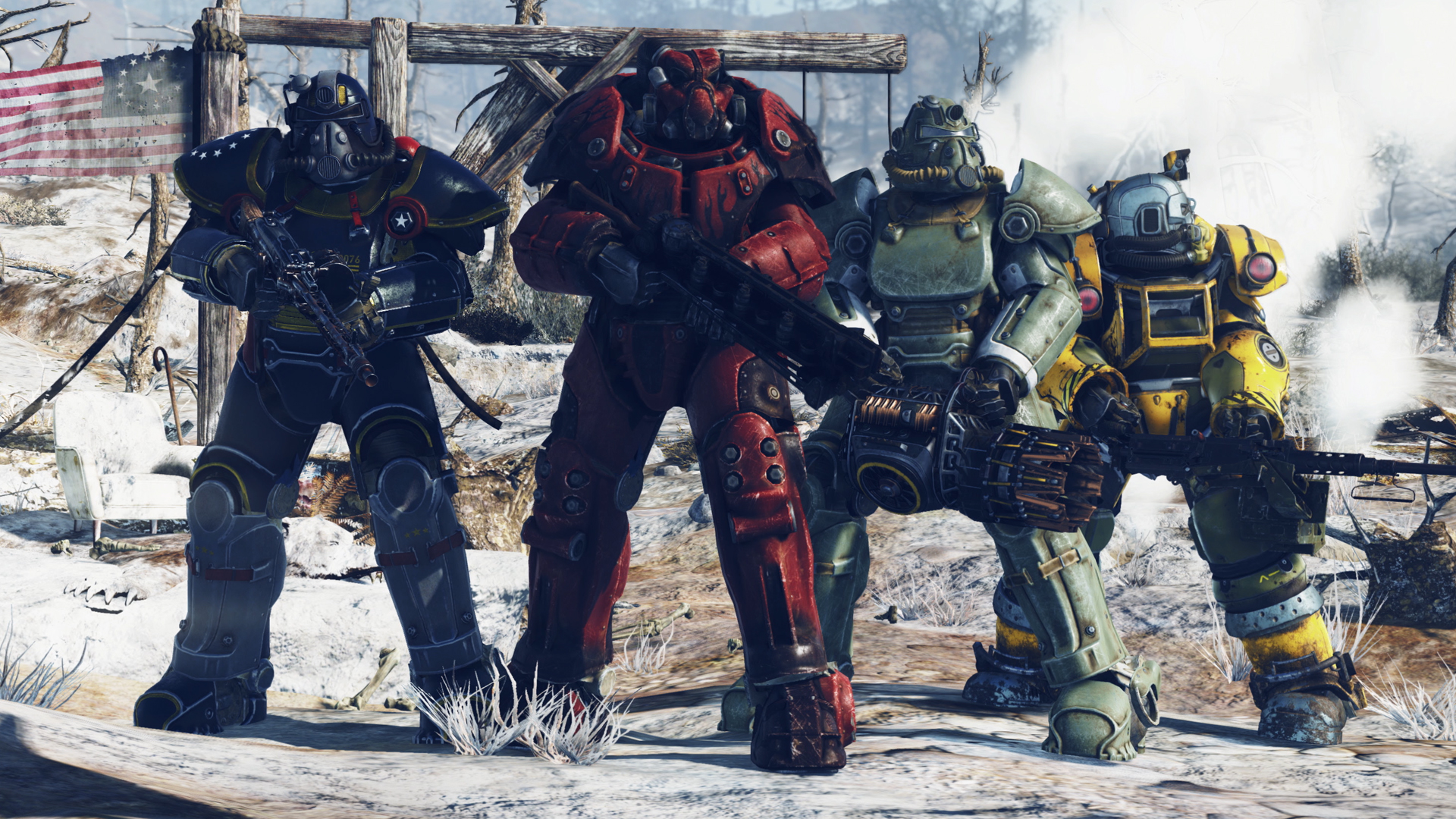From Vampyr to We Happy Few: 2018’s blitz of British-set video games paints five pictures of one nation
Making sense of the games industry’s recent obsession with Great Britain
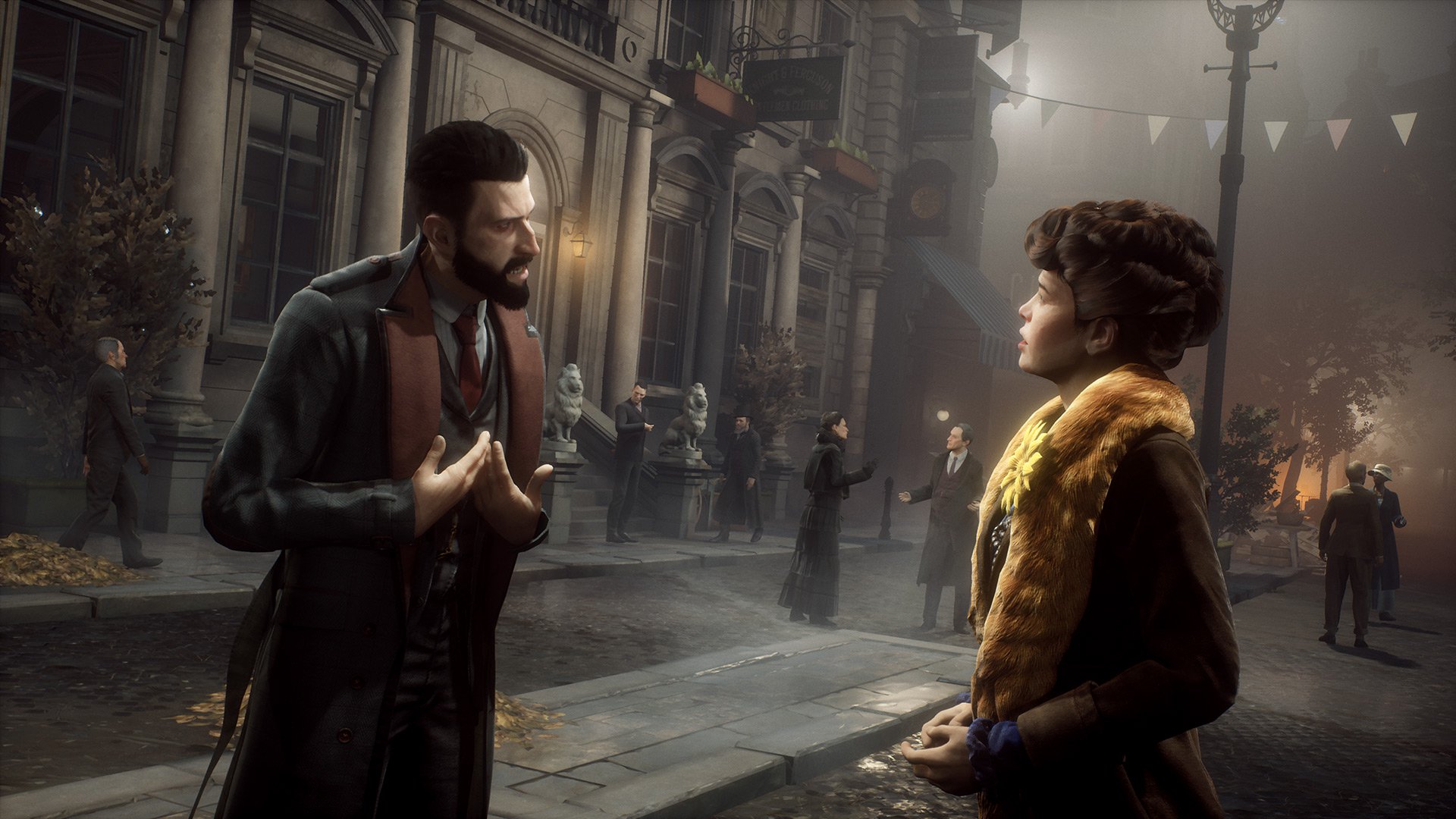
If 2012 was gaming’s year of the bow, and 2016 was the year of virtual reality, then I’m calling it now; 2018 is the year of an unusually high amount of games being either set in, or acutely inspired by Great Britain (not quite as catchy, I know, but it’s a work in progress). From We Happy Few to Forza Horizon 4, Strange Brigade to Vampyr and Not Tonight, these five notable releases of 2018 are presenting five very different visions of a nation that, historically, has never been this ubiquitous across the space of a few months in the gaming calendar.
That’s partly because, at least when it comes to the Western world, America’s always been the natural video game setting of choice for the bigger, typically more action-focused titles, and not just because it represents one of the largest gaming markets in the world, second only to China. Titles like The Division, GTA 5, Watch Dogs 2, and Far Cry 5, just to name a few examples, all inherently depend on the US constitution as a narrative backbone to explain away their gun-heavy gameplay, but set these games in the UK, and the suspension of disbelief is broken.
If these contextual limitations have been what has traditionally kept developers away from setting their games in England, the industry’s growing fascination with alternative history may provide the solution. Take We Happy Few, set in a timeline where Germany wins World War 2 and violence is therefore understandably more prevalent. It’s a game deeply inspired not just by the historiography of post-modern England, but some of Britain’s most famous writers and artists. It’s as though Compulsion Games stuffed the works of Orwell, Gilliam, and Heinz Edelmann into a bottle and just started wildly shaking it to see what would come out.
Cruel Britannia
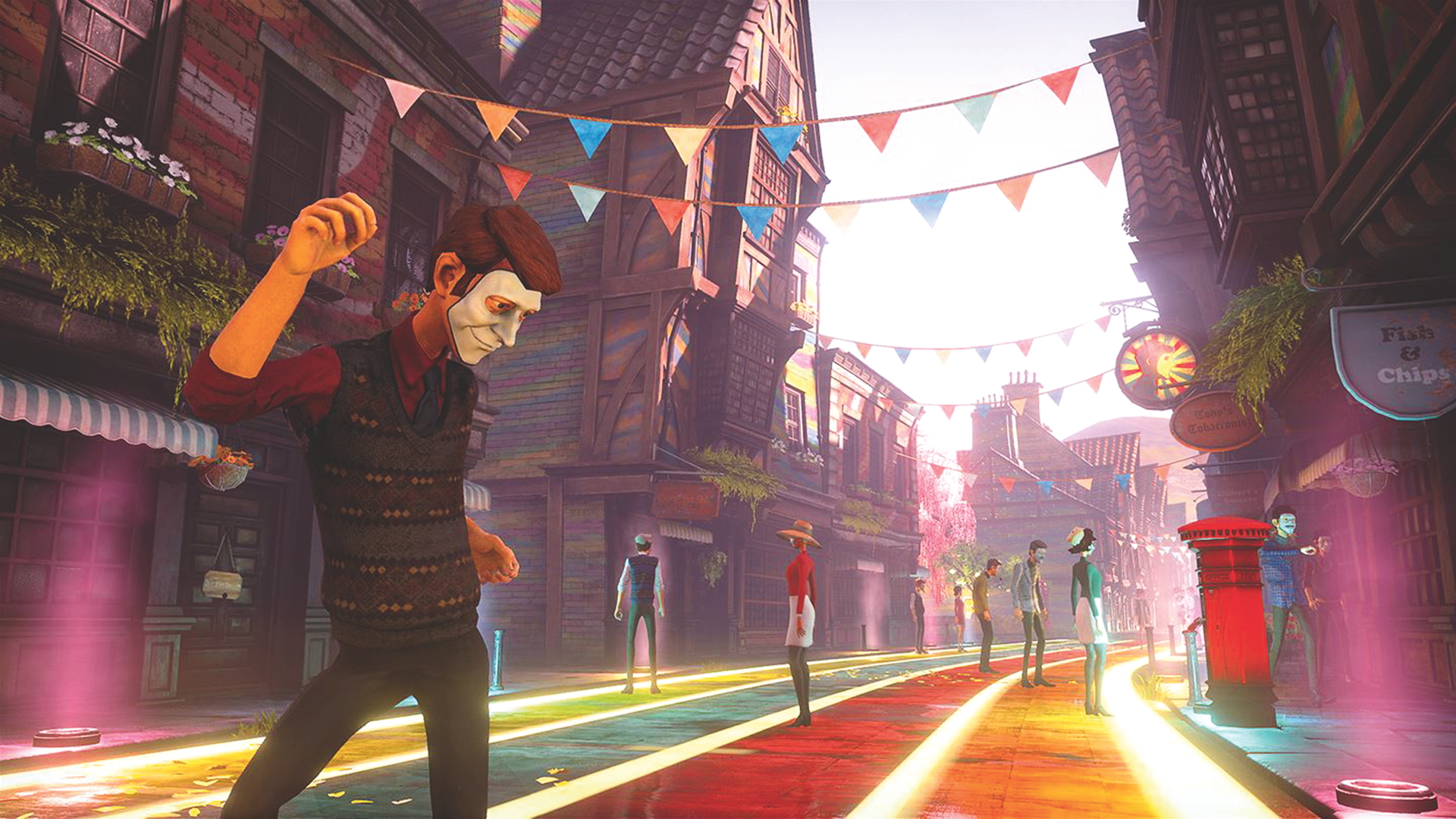
Given the nature of its story, in which denizens of fictional town Wellington Wells are forced to take a hallucinogenic drug to ignore all the horrible things happening to them, We Happy Few is not exactly a sparkling depiction of Britain, but Producer Sam Abbot explains that the nation’s tumultuous history is what made it such an appealing destination for a video game in the first place.
“I think England and the United Kingdom generally is an interesting setting to explore for three main reasons”, explains Abbot, when asked about Compulsion Games’ decision to set We Happy Few in the country. “The nature of the UK's contributions to the world, how well it has been documented, and our own familiarity with it.”
“The UK has contributed significantly to almost every human discipline, whether it’s in industry, academia, fashion, music, art, architecture, politics, or almost anything you can imagine... except maybe food! Importantly, that includes both positive and negative contributions - the heights of human achievement would be nothing without the lows, and having a rich variety of those kinds of influences means that you've almost always got interesting things to work with.”
It’s a similar case of contradictions in Vampyr, Dontnod Entertainment’s Victorian London-set RPG which also released earlier this year. As protagonist Jonathan Reid, you get to soak in London’s gothic architecture and metropolitan bustle, but players are also forced to acknowledge the presence of deep set poverty and social inequality; two problems which the city is still grappling with to this day. So Vampyr and We Happy Few don’t shy away from examining Britain’s darker shades, but that’s not the case for all the other Brit-focused games this year.
Sign up to the GamesRadar+ Newsletter
Weekly digests, tales from the communities you love, and more
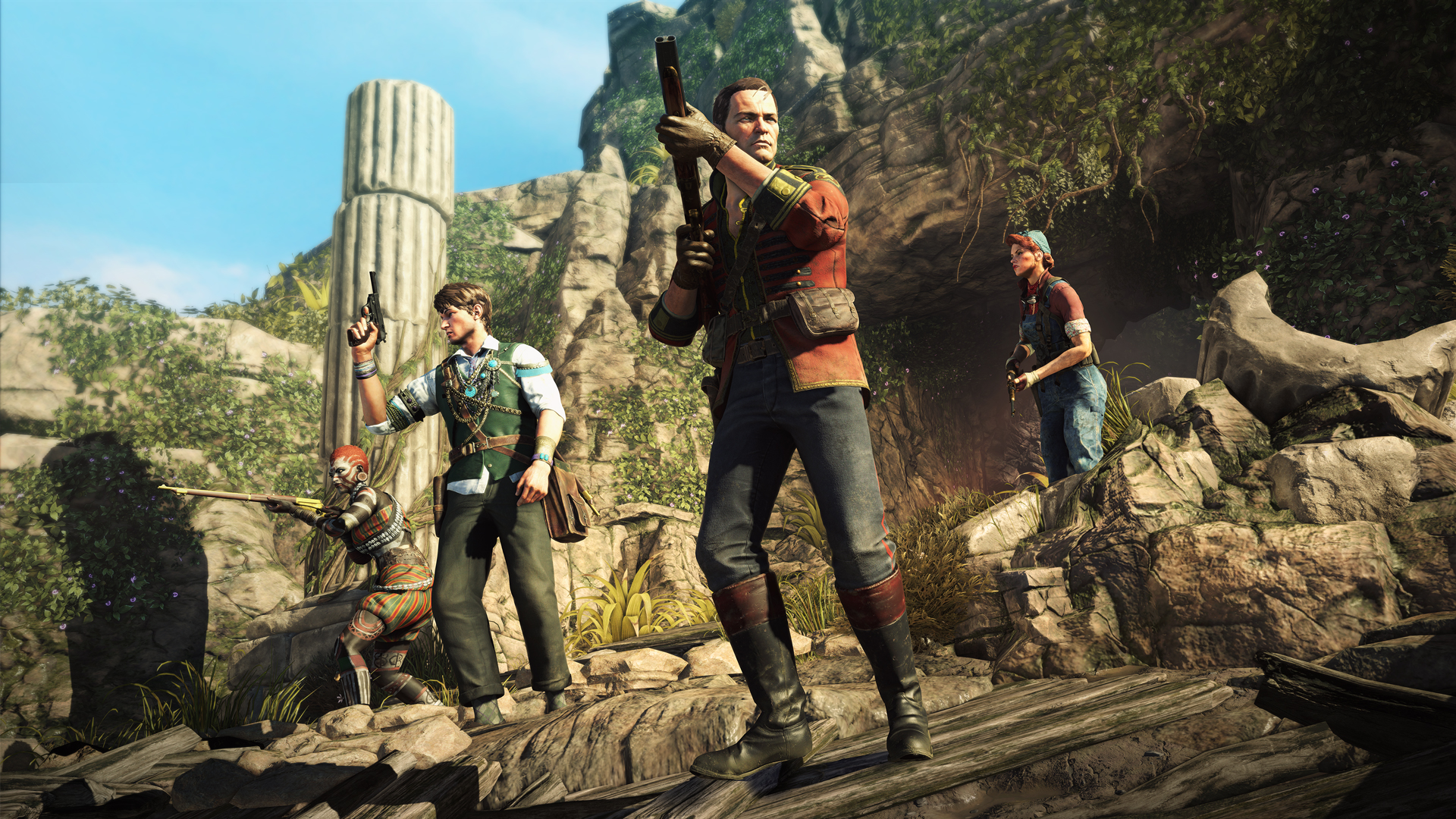
Forza Horizon 4, as has always been the case for the series, seeks to authentically replicate the UK’s natural and urban landscapes but, rightly or wrongly, will probably stop short of any cultural commentary. Similarly, Strange Brigade is technically set in Egypt, but Rebellion’s co-op action game heavily channels the peppy British spirit of Victorian pulp adventure novels for laughs and colour, even if that does mean casually glossing over the glaring associations with Britain’s ugly colonial past.
“I do think it’s important we, as the UK games industry, can draw on our own strengths and make games that draw on British culture.” says Rebellion CEO Jason Kingsley. “Strange Brigade builds on things like the Boy’s Own comics and books, and the matinee movies and adventure serials that really dominated British culture in the 1930s – thrilling, tantalising adventures that are endearing in their naivety. The idea in sort of sprang from things like this book cover that had a man driving a Bugatti with a tiger sprawled on the front. We wanted the game to offer a ‘tiger-on-a-Bugatti ‘ kind of adventure!”
“One of the most British things in the game is the unreliable narrator. He basically commentates on the action as it goes on in this fantastic old Pathe news announcer voice, and I think we’ve captured a very homegrown kind of wit with his lines and delivery. It’s all a little bit of poking fun at ourselves, really, and what could be more British than that?”
Brexit level
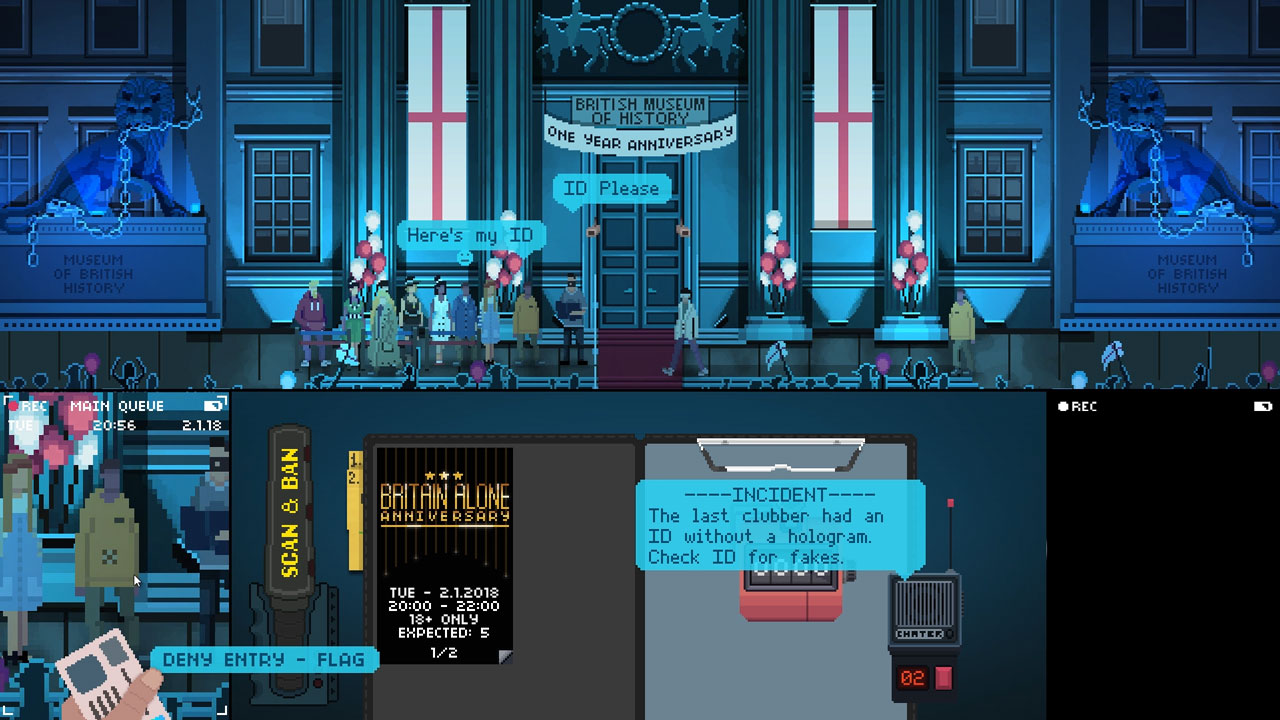
In all of this talk of politics, culture, and Great Britain, you’ll notice that I haven’t yet mentioned the dreaded B word. That’s because it can sometimes feel reductive to bring it up when talking about games, especially as many of these titles had conceived their ideas and themes long before the 2016 referendum, when Britain voted to leave the European Union.
But, with Not Tonight, which describes itself as a “post-Brexit management game”, the allusions are unavoidable. With its setting, story, and gameplay, Not Tonight is making very explicit commentary on the state of contemporary Britain, depicting a future where the country has officially left the EU and you play a nightclub bouncer, where your powers of prejudice are a miserable reflection of the nation’s own border policy. The game’s Creative Director Tim Constant tells me that “Not Tonight is about as British as it comes”, but he’s just as interested in exploring his own heritage as much as anything else.
“Although the dystopian post-Brexit theme kind of forced my hand in terms of setting; one unexpected bonus was that it allowed me to feel like a subject expert.” he says. “Growing up in Somerset gave me a certain confidence using settings and characters in an area I was super familiar with, and hopefully that’s reflected in game.”
“I love the concept of work simulator games, and placing the document checking of Papers Please or Cart Life into a contemporary setting; the queues of nightspots. The natural location to base that was in Somerset, where a long time ago as a 17 year old, it felt like a life or death situation to see if I would get past the intimidating bouncer. Then, decades later along came Brexit and the similarity of deciding who could get into a nightspot and who could get into the country seemed to appear.”
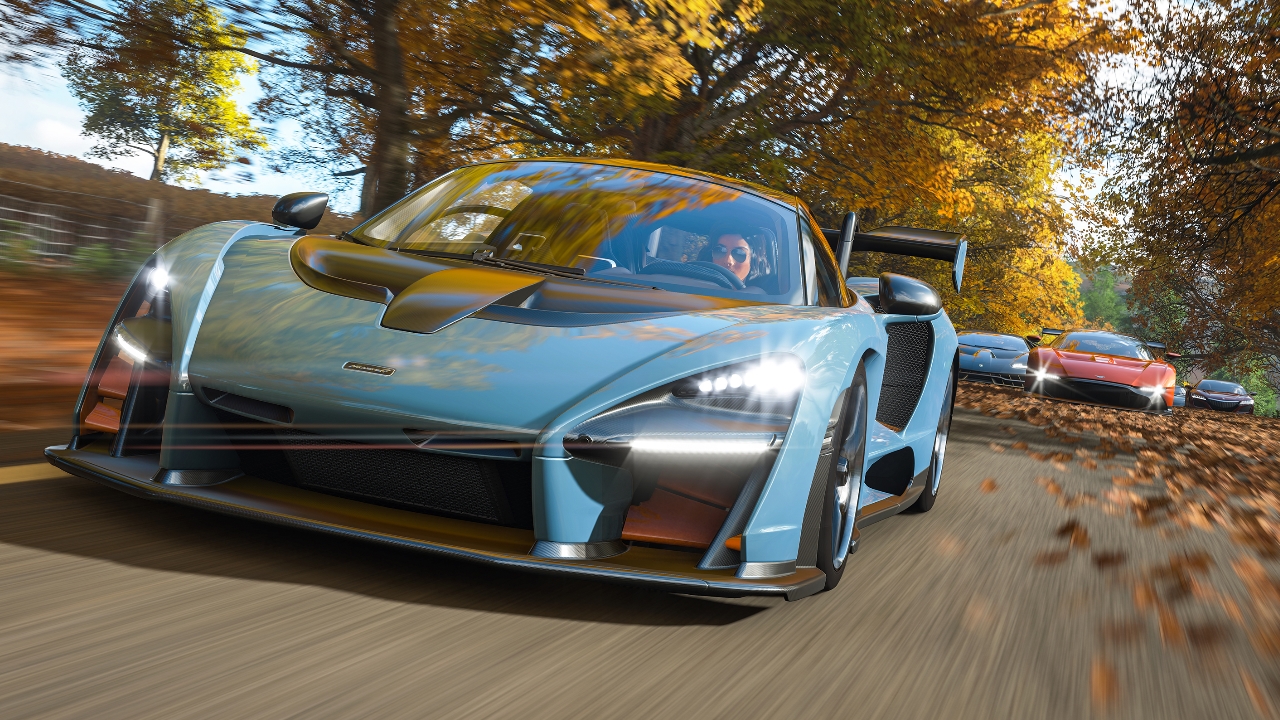
"It’s all a little bit of poking fun at ourselves, really, and what could be more British than that?”
Jason Kingsley, Rebellion CEO
From Strange Brigade’s carefree celebration of British culture to Not Tonight’s dystopian take on the country’s future, it’s telling that even just 2018’s handful of aforementioned games offer such a wildly varying portrait of a single country, both overly flattering and unflinchingly critical in equal measure. As a wider range of titles and genres continue to explore the mores and milieus of the UK, its representation in the medium will become richer and more interesting, and we can only imagine the results when the bigger studios and publishers get involved.
It’s said that the new Watch Dogs game will be set in London, for instance, while Playground Games’ rumoured Fable 4 will no doubt take more cues from the medieval fantasy stylings that’s so deeply inspired by England’s middle ages. Meanwhile, places like Ireland, Wales, and Scotland remain woefully ignored by video games. When it comes to Blighty, then, it feels like 2018’s releases have only just scratched the surface.
I'm GamesRadar's Features Writer, which makes me responsible for gracing the internet with as many of my words as possible, including reviews, previews, interviews, and more. Lucky internet!
